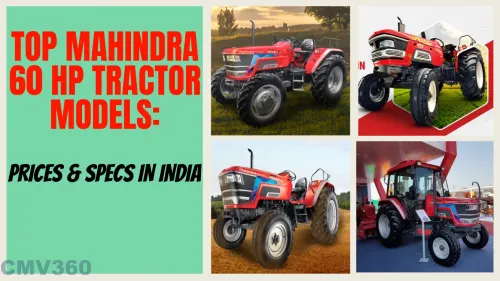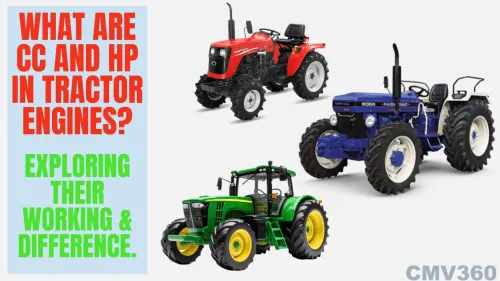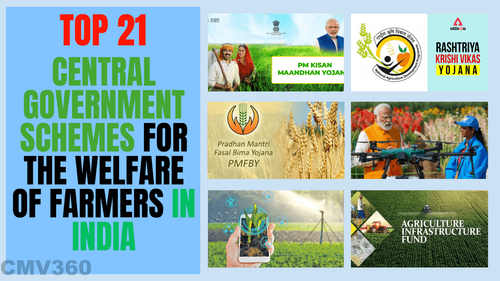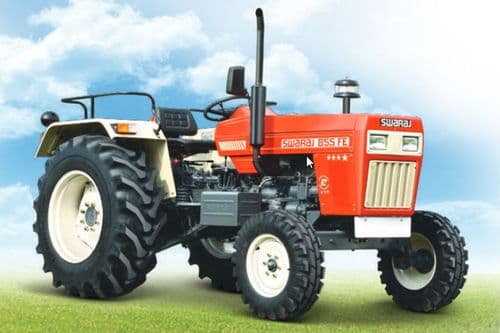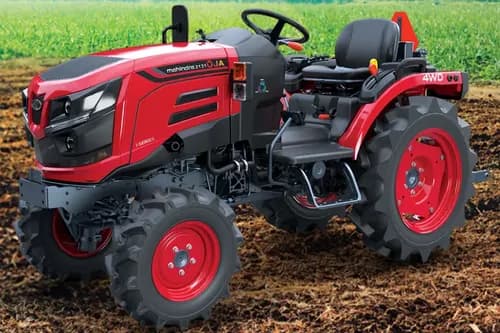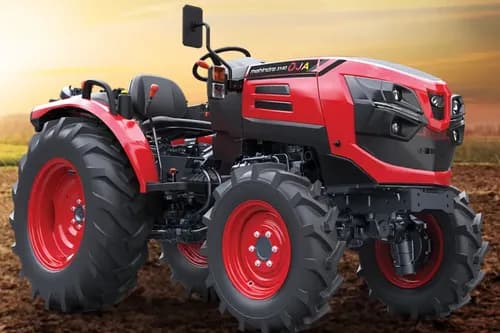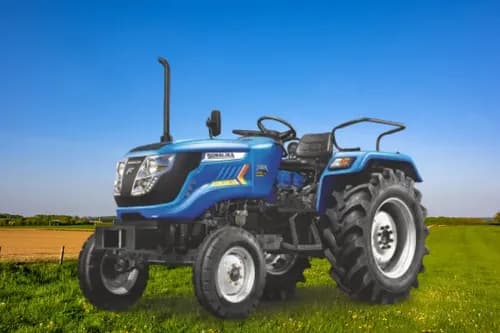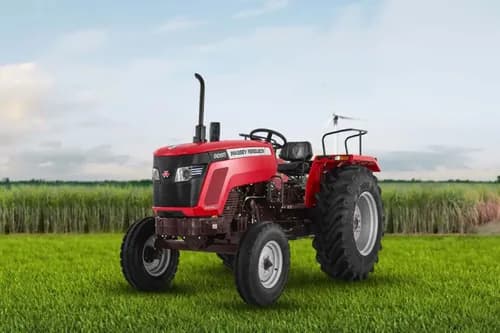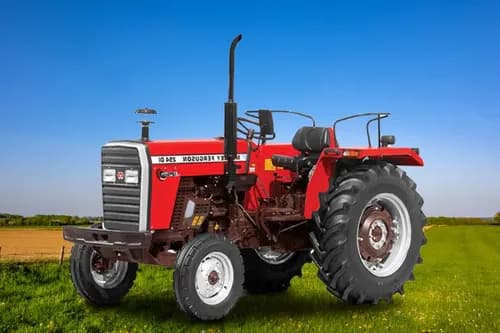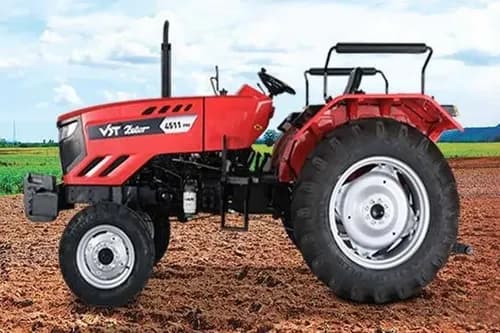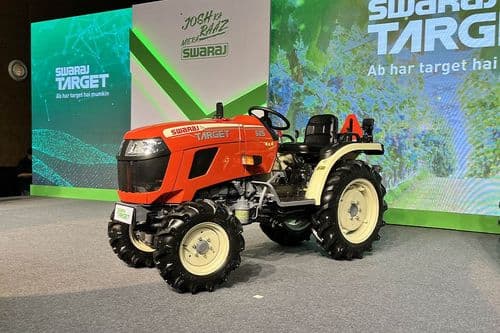Ad
Ad
Ad
A Guide to Integrated Farming System (IFS) - Benefits, Guidelines, and FAQs
Integrated Farming System (IFS) is an approach that involves combining different agricultural practices, such as crop cultivation, animal husbandry, and aquaculture, with pig farming to create a balanced and interdependent ecosystem. This approach aims to maximize the utilization of resources and nutrients while restoring ecological balance, which in turn increases the income of farmers.

In an IFS, all elements are interconnected, and waste from one element becomes a valuable resource for another. For instance, some portion of agricultural land can be used for growing fodder crops for animals, and the crop residue can be used as animal feed. The excreta and urine from livestock can be used as organic fertilizer to improve soil health. The result of this interdependency is the optimum utilization of resources and nutrients, which leads to increased productivity, reduced waste disposal efforts, and improved soil health.
The benefits of IFS to farmers are numerous. They include increased income from both crop cultivation and animal husbandry, reduced efforts required to dispose of waste, and improved soil health. Additionally, the interdependent nature of IFS ensures the sustainability of agriculture, as farmers can continue to utilize their resources and maintain ecological balance.
It is important to note, however, that some enterprises may be undertaken solely to increase farmers' income without any interdependency with agriculture. In such cases, the essence of IFS is lost, and the benefits may not be as significant. Thus, to reap the full benefits of IFS, it is essential to ensure that all elements are interdependent and work together as a balanced ecosystem.
What are the features of Integrated Farming System (IFS)?
Integrated Farming System (IFS) is a farming system that integrates multiple agricultural practices such as crop cultivation, animal husbandry, aquaculture, and fish farming. The key features of IFS are:
-
Interdependency: In IFS, all elements are interdependent, and the waste from one element becomes a valuable resource for another. For example, the crop residue from crop cultivation can be used as animal feed, and the excreta and urine from livestock can be used as organic fertilizer to improve soil health.
-
Optimum utilization of resources: IFS promotes the efficient use of resources, reducing waste and maximizing productivity. By integrating different farming practices, IFS enables the use of resources like water, land, and nutrients to their full potential.
-
Restoration of ecological balance: IFS creates a self-sustaining ecosystem where all elements work together to restore ecological balance. The use of organic fertilizer from livestock waste improves soil health, reduces soil erosion and promotes biodiversity.
-
Diversification of income: IFS promotes diversification of income by providing multiple sources of income to farmers. For example, livestock rearing and fish farming can provide an additional source of income alongside crop cultivation.
-
Reduced environmental impact: IFS reduces the environmental impact of agriculture by reducing the use of chemical fertilizers, pesticides, and other inputs. By using organic fertilizer from livestock waste, IFS reduces pollution and soil degradation.
-
Improved soil health: IFS improves soil health by reducing soil erosion and nutrient depletion. The use of organic fertilizer from livestock waste enhances soil fertility, increasing crop yields and improving soil structure.
Overall, IFS promotes sustainable agriculture by promoting the efficient use of resources, reducing waste, and restoring ecological balance.
How is Integrated Farming System (IFS) Important for Sustainable Agriculture?
Sustainable development is a critical concept that underpins many discussions and decisions, ranging from economic to climatic matters. The core principle of sustainable development is to ensure that the needs of the present generation are met without compromising the needs of future generations. Among the most pressing needs for human survival is food security, making sustainable agriculture a key solution.
The sustainability of agriculture is particularly crucial for small farmers, who make up about 80% of farmers in India. A variety of strategies have been developed to achieve sustainable agriculture, including agro-climatic zoning, various farming methods such as crop rotation and mixed farming, soil and nutrition management, and Integrated Farming Systems (IFS).
Sustainable agriculture can be viewed as an intersection of economic profitability, social well-being, and ecological balance. IFS is a farming practice that enhances each of these components, contributing significantly to the sustainability of agriculture.
In IFS, different farming methods such as crop cultivation, animal husbandry, and aquaculture are integrated, creating a self-sustaining and interdependent ecosystem. As a result, IFS promotes the efficient use of resources, reduces waste, and enhances soil health. The use of organic fertilizer from livestock excreta and urine reduces the need for chemical fertilizers, improving soil health and reducing pollution.
Moreover, IFS enhances the economic viability of small farmers by providing multiple sources of income. For example, livestock rearing and fish farming can provide an additional source of income alongside crop cultivation. In addition, the interdependent nature of IFS ensures social well-being by promoting cooperation and shared resources among farmers.
Overall, IFS is a crucial component of sustainable agriculture, contributing to economic profitability, social well-being, and ecological balance. By embracing sustainable agriculture practices like IFS, we can meet our current needs while ensuring the needs of future generations are not compromised.
What are the Benefits and Impacts of Integrated Farming System (IFS)?
IFS has many benefits and positive impacts on both the environment and the farmers. Here are some of them:
Economic Impact
The economic profitability of farmers is a crucial aspect of sustainable agriculture. Here are the detailed points about how Integrated Farming System (IFS) promotes economic profitability:
-
Productivity gain: IFS has the potential to increase productivity multiple times. For instance, the practice of apiculture (beekeeping) with oilseed cultivation has shown productivity gain of 2-3 times in oilseed due to pollination services provided by bees. Moreover, farmers get additional marketable products such as honey, wax, bee venom, and pollen from such mix-farming. This further enhances the profits of farmers. Therefore, beekeeping is being promoted under the Mission for Integrated Development of Horticulture.
-
Benefit for small farmers: Approximately 80% of farmers in India are small and marginal farmers who practice subsistence agriculture. IFS increases the productivity of not just crops but also of farmers. With better productivity and more marketable products in hand, small farmers can also generate handsome revenue. For example, the practice of agroforestry on edges of farmlands and fallow lands provides farmers with revenue-generating products like timber, fruits, and herbs. Under the ‘Har Med pe Ped’ initiative of Sub-mission on Agro-forestry, a sub-mission of Mission for Sustainable Agriculture, agroforestry is promoted among farmers.
-
Promoting Bamboo cultivation: Bamboo is a versatile plant that can survive in a variety of climates and matures very fast. For this reason, it is being promoted under National Bamboo Mission. Bamboo cultivation can generate revenue for farmers through multiple channels such as handicrafts, paper, furniture, and construction materials.
In conclusion, IFS promotes economic profitability in sustainable agriculture by increasing productivity, providing additional marketable products, and generating revenue for small farmers. The promotion of beekeeping, agroforestry, and bamboo cultivation provides farmers with diversified income sources and helps to increase their economic sustainability.

Social Impact
The social impact of Integrated Farming Systems (IFS) can be elaborated as follows:
-
Food and Nutritional Security: IFS promotes the production of various crops, dairy products, honey, fruits, and medicinal plants, ensuring food and nutritional security for the population. The integration of different components in IFS ensures a diverse range of food products for consumption.
-
Health Benefits: IFS provides nutritious food to the population, improving their overall health. Consumption of milk and dairy products provides calcium and other essential nutrients. Honey is known for its medicinal properties, and fruits and medicinal plants provide essential vitamins and minerals.
-
Employment Generation: IFS promotes employment generation in rural areas. Practices like agroforestry require skilled and unskilled labor, providing employment opportunities to local people. Other activities like animal husbandry and apiculture also generate employment opportunities.
-
Allied Industries: The availability of a diverse range of agro-products through IFS promotes the growth of allied industries like food processing, dairy processing, and herbal medicine manufacturing. This results in the development of small and medium enterprises in rural areas, contributing to the rural economy.
-
Gender Empowerment: In rural areas, women are often involved in household activities, including farming. IFS promotes the participation of women in agriculture and other allied activities, providing them with financial independence and decision-making power.
-
Social Cohesion: IFS promotes social cohesion in rural areas by encouraging collaboration among farmers. This results in the exchange of knowledge and resources, leading to the development of strong social networks. It also promotes the sharing of resources like irrigation systems and equipment, leading to a sense of community ownership.
Ecological Impact
Integrated Farming Systems (IFS) has a positive impact on the ecology of the region, promoting ecological balance in the following ways:
-
Decreased dependency on chemical fertilizers: In IFS, the excreta from animals are utilized as manure, decreasing the dependency on chemical fertilizers. This promotes organic farming at a low cost and impacts soil fertility positively.
-
Diversification of species: With the integration of various organic farming models, IFS promotes diversification of species in a local area. This helps increase the complexity of the food web, inducing stability in the local ecosystem, and supporting more wildlife with time.
-
Reduced soil erosion: IFS promotes the use of cover crops and mixed farming, which help in reducing soil erosion. This ensures that the soil structure remains intact, thereby promoting soil health and biodiversity.
-
Efficient use of resources: The essence of IFS is that it works like an ecosystem where all the elements are in equilibrium and interdependent. The waste of one element works as a nutrient for another, leading to the efficient use of resources and nutrients.
-
Preservation of natural resources: IFS promotes the use of sustainable farming methods that help preserve natural resources like water, land, and biodiversity. This helps maintain the ecological balance of the region.
-
Reduction in greenhouse gas emissions: IFS promotes the use of sustainable farming methods that help reduce greenhouse gas emissions. For example, the use of animal waste as organic fertilizer reduces the need for synthetic fertilizers, which are responsible for emitting greenhouse gases.
Some Important Resources and Knowledge Centres for Integrated Farming Systems (IFS)
Proper management of farms is crucial for the success of IFS. Farmers need to make informed decisions to ensure that the different elements of their farm are well-managed and do not harm each other. To facilitate this, the Indian Council of Agriculture Research (ICAR) has developed 45 IFS models that cover all the 15 agro-climatic zones of India.
Krishi Vigyan Kendra (KVKs) have been set up as resource and knowledge centers in the field of agriculture in each district of India. They serve as a bridge between research and extension activities in agriculture, horticulture, animal husbandry, and fisheries. They provide information and training to farmers, agricultural entrepreneurs, and extension workers on IFS models, agroforestry practices, crop management, animal husbandry, and other allied activities.
KVKs also help in disseminating information on new technologies and innovations in agriculture, providing support for seed production, testing and certification, and organizing training programs and demonstrations. They also conduct research and on-farm trials on IFS models and other agricultural practices to provide scientific evidence for their effectiveness. By providing farmers with the necessary resources and knowledge, KVKs play a vital role in promoting the adoption and success of IFS and sustainable agriculture.
What is the eligibility criteria to avail benefits of the Integrated Farming System (IFS)?
There are no specific eligibility criteria to avail benefits of Integrated Farming System (IFS). Any farmer who is willing to adopt the IFS model can benefit from it. However, it is important to note that IFS requires proper planning, management, and knowledge of different farming techniques, and hence, farmers need to be trained and educated about the same. Many government initiatives like the National Mission on Sustainable Agriculture, National Bamboo Mission, and Mission for Integrated Development of Horticulture provide training and support to farmers to adopt IFS practices. The Indian Council of Agriculture Research (ICAR) has also developed 45 IFS models, which can be used as a reference by farmers to implement IFS in their farms.
What are some general guidelines for Integrated Farming System (IFS)?
Here are some general guidelines for Integrated Farming System (IFS):
-
Identify suitable crops: Choose crops that are best suited for the local agro-climatic conditions, and that can be grown together in the same area.
-
Selection of livestock: Choose appropriate livestock, keeping in mind their compatibility with crops, and their ability to provide multiple benefits like manure, milk, and meat.
-
Optimal use of resources: Use of natural resources like land, water, and sunlight should be done optimally to maximize productivity and minimize waste.
-
Crop rotation: Practice crop rotation to minimize soil erosion, and maintain soil fertility.
-
Pest and disease management: Use of integrated pest management practices like biocontrol, natural pesticides, and crop rotation to minimize the use of synthetic pesticides.
-
Efficient use of energy: Use of renewable sources of energy like solar energy for irrigation, and efficient use of machinery to minimize energy consumption.
-
Marketing of produce: Create linkages with local markets, and explore opportunities for value addition to produce to increase profitability.
-
Monitoring and evaluation: Regular monitoring and evaluation of the performance of the IFS system, and making necessary modifications to optimize productivity and sustainability.
What are some FAQs on Integrated Farming System (IFS)?
Here are some frequently asked questions (FAQs) on Integrated Farming System (IFS):
Q1: What is IFS?
Ans: Integrated Farming System (IFS) is a sustainable agricultural system that involves integrating different crops, animals, and agroforestry in a way that optimizes the use of resources, improves productivity, and enhances income of farmers.
Q2: What are the benefits of IFS?
Ans: IFS has several benefits such as improved soil health, enhanced productivity, diversified income sources for farmers, reduced use of chemical fertilizers, and increased resilience to climate change.
Q3: What are some examples of IFS practices?
Ans: Some examples of IFS practices include crop rotation, intercropping, agroforestry, mixed farming, and use of organic fertilizers.
Q4: Is IFS suitable for small farmers?
Ans: Yes, IFS is particularly suitable for small farmers as it helps in improving their income, and optimizes the use of resources available to them.
Q5: What are the challenges of adopting IFS?
Ans: Challenges in adopting IFS include lack of knowledge and awareness among farmers, inadequate infrastructure for processing and marketing of produce, and limited access to credit and other inputs.
Q6: Are there any government schemes or programs for promoting IFS?
Ans: Yes, the government of India has several schemes and programs aimed at promoting IFS. These include the National Mission for Sustainable Agriculture, National Horticulture Mission, and the Sub-mission on Agroforestry, among others.
Features & Articles
Top 5 Reasons to Buy a Tata Ace HT Plus in India
This article lists the top 5 reasons to buy a Tata Ace HT Plus in India for your business....
17-Apr-24 09:44 AM
Read Full NewsTop Mahindra 60 HP Tractor Models: Prices & Specs in India
Mahindra's 60 HP tractors: versatile, robust, with advanced features, balancing affordability and performance for Indian farmer's needs....
17-Apr-24 08:56 AM
Read Full NewsWhat are CC and HP in Tractor Engines? Exploring their Working & Differences
CC and HP are vital for tractor efficiency. Farmers should understand these metrics to maximize productivity and functionality....
16-Apr-24 12:52 PM
Read Full NewsTata Ace: How It Became India's Top-Selling Mini Truck
The Tata Ace is a popular mini-truck in India, loved by customers since its launch in 2005. It's tough and reliable, perfect for delivering goods to every corner of the c...
16-Apr-24 12:42 PM
Read Full NewsTop 21 Central Government Schemes for the Welfare of Farmers in India
Are you an Indian farmer seeking government support for agriculture? Explore top central schemes offering financial aid and technical assistance....
15-Apr-24 11:24 AM
Read Full NewsGovernment Introduces Solar Panel Subsidy: Electric Vehicle Owners to Enjoy Free Charging
PM Surya Ghar: Muft Bijli Yojana, is a visionary government initiative aimed at providing free electricity through the installation of solar panels....
15-Apr-24 10:54 AM
Read Full NewsAd
Ad
Registered Office Address
Delente Technologies Pvt. Ltd.
M3M Cosmopolitan, 12th Cosmopolitan,
Golf Course Ext Rd, Sector 66, Gurugram, Haryana
pincode - 122002
Join CMV360
Receive pricing updates, buying tips & more!
Follow Us
COMMERCIAL VEHICLE BUYING BECOMES EASY AT CMV360
CMV360 - is a leading commercial vehicle marketplace. We helps consumers to Buy, Finance, Insure and Service their commercial vehicles.
We bring great transparency on pricing, information and comparison of tractors, trucks, buses and three wheelers.

